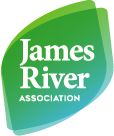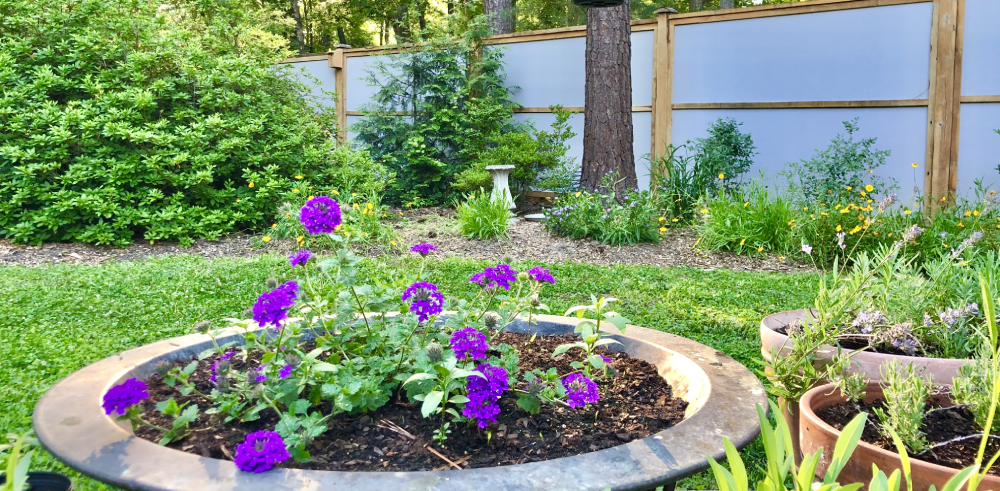Fall is here and there isn’t a better time of year to implement river-friendly conservation practices right where you live. At the James River Association (JRA), we believe stewardship of our natural resources starts at home. These five conservation tips will improve the health of your yard and contribute to a healthier James River.
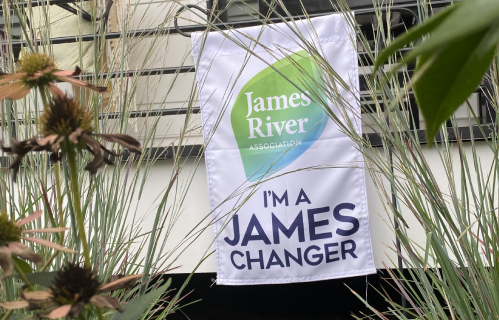
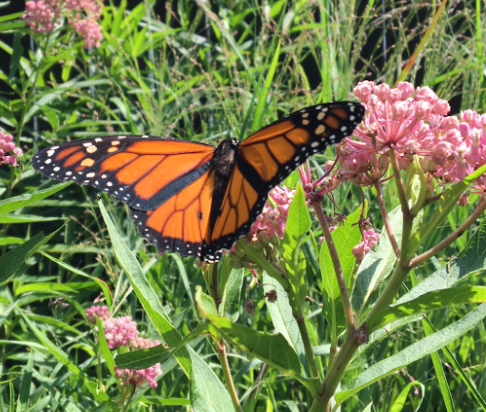
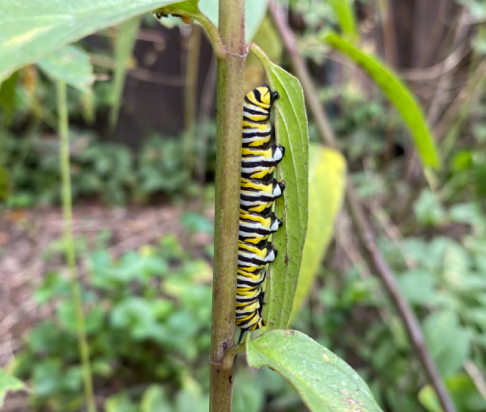
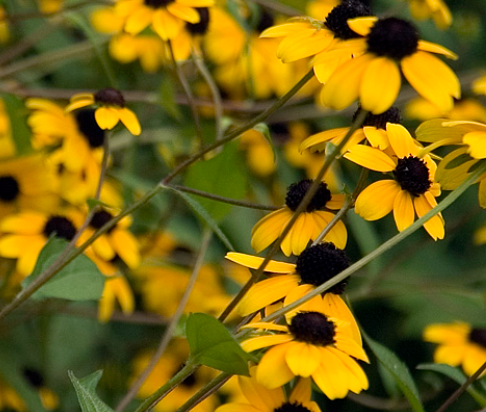
1. Plant Milkweed for Monarchs and don’t deadhead flowers quite yet.
A thrilling aspect of using native plants in landscapes and gardens is watching them attract wildlife. Monarch butterflies (Danaus plexippus) depend on Milkweed for food and reproduction this time of year. Milkweed species are larval hosts for Monarchs and females lay eggs on the leaves of Milkweed, which provide food for larvae after they hatch. Keep your eyes open for Monarch larvae on Milkweed in your yard this time of year. Species of milkweed found in the James River basin include Butterfly weed (Asclepias tuberosa), Common milkweed (Asclepias syriaca), Honeyvine (Cynachum laeve), and Swamp milkweed (Asclepias incarnata). If you are thinking about adding milkweed to your garden or landscape, fall is the ideal time to sow seeds.
Native perennials like Black-eyed Susans (Rudbeckia hirta), Brown-eyed Susans (Rudbeckia Triloba), and Orange coneflower (Rudbeckia fulgida) produce beautiful yellow flowers and provide food for pollinators and birds. If you have perennials like Black-eyed Susans, Brown-eyed Susans, or Orange coneflower in your yard, don’t deadhead them yet. Instead wait until late winter or early spring to deadhead them. Dried seed heads are an important food source for birds.
2. Give your rake a break and skip the fertilizer. As peak foliage approaches and trees begin to lose their leaves, consider leaving leaves in place or using them as mulch and compost in gardens and landscapes. Leaves are a natural source of fertilizer. As leaves decompose, nutrients including Carbon, Nitrogen, Phosphorous, and Potassium are released into the soil thereby reducing the need for store-bought chemical fertilizers.
Additionally, gas-powered leaf blowers are noisy and emit pollutants including carbon monoxide, smog-forming nitrous oxides that also cause acid rain, and carcinogenic hydrocarbons. Use a rake, electric leaf blower, or battery-powered leaf blower to manage leaves instead. Never rake or blow leaves into streets and keep leaf litter and tree debris out of storm drains to prevent clogs. Clogged storm sewer systems can lead to localized flooding.
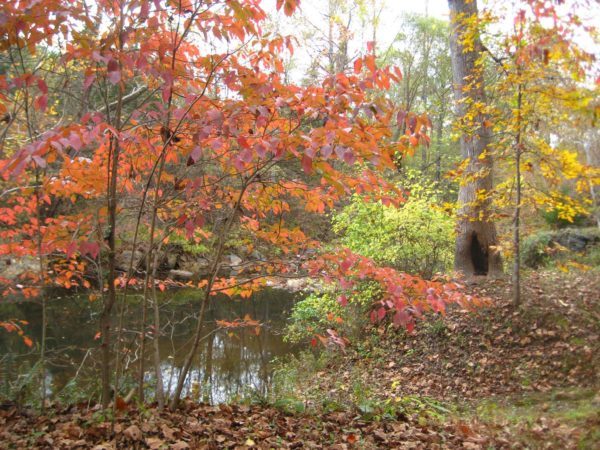
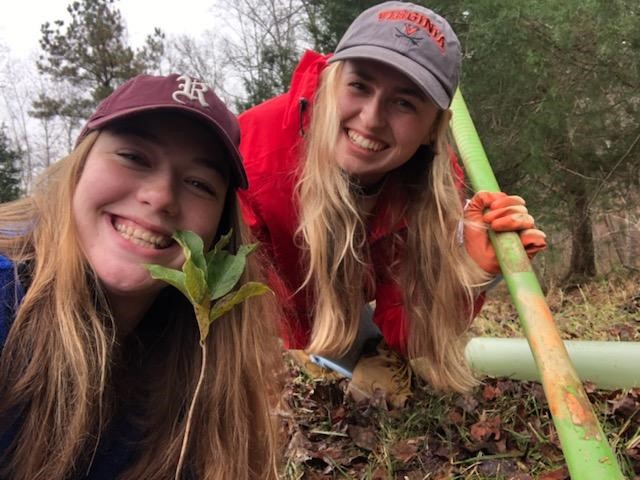
3. Plant a native tree. Did you know trees reduce stormwater runoff? Tree leaves intercept rainwater before it has an opportunity to become stormwater runoff. They also improve soil infiltration and absorb water from the ground. An easy way to manage stormwater and support a healthy James River at home is to plant native trees in your yard and steward them.
4. Participate in a rain barrel workshop. Rain barrels can harvest thousands of gallons of rainwater that can be used to water landscapes and gardens on an annual basis. They are also a good way to reduce stormwater runoff at home. Click here to sign up to be notified when registration opens for one of our workshops. Each workshop registration comes with a plastic 55-gallon drum, rain barrel assembly kit, and instructions provided by JRA staff members.
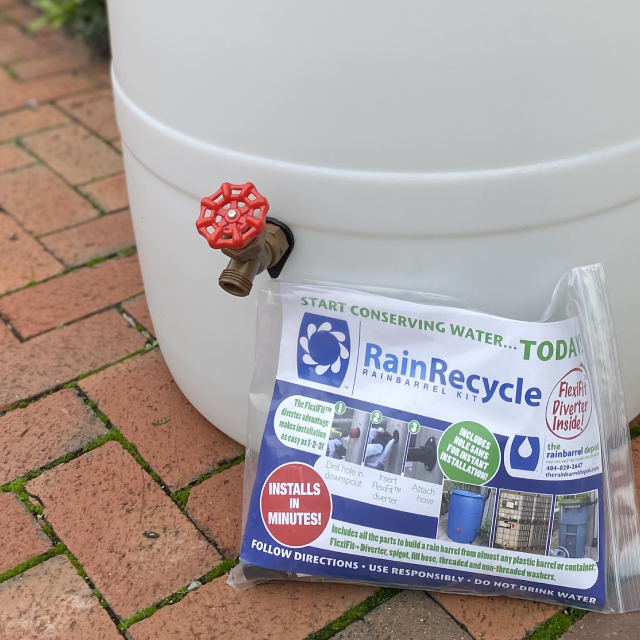
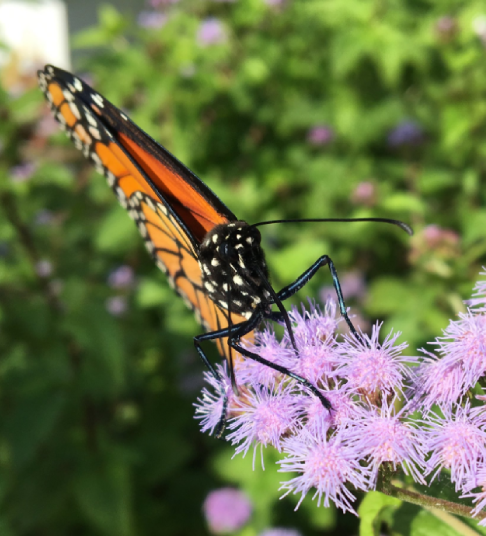
5. Join JRA’s River Hero Homes program. River Hero Homes is a community of stewards that realize the first step to a cleaner James River starts at home. Be a James Changer by joining the River Hero Homes program and improve the health of the James River by committing to at least three of the five behaviors below.
- Scoop the poop. Pick up pet waste to prevent bacteria pollution.
- Use native plants. Use regionally native plants and remove invasive plants in gardens and landscapes.
- Reduce herbicide and pesticide use. Reduce or eliminate herbicide and pesticide use to promote a healthy ecosystem.
- Reduce fertilizer use. Reduce or eliminate fertilizer use to reduce nutrient pollution entering our waterways and encourage healthy soil by using compost.
- Conserve water. Reduce household water use and install a rain barrel to harvest rainwater for watering needs if possible.
JRA’s River Hero Homes program would not be possible without the generous support from Altria and DuPont. Their support allows us to promote conservation and stewardship practices that support a healthy James River. Click here for more information about the River Hero Homes program, and to become a hero for the river today.
